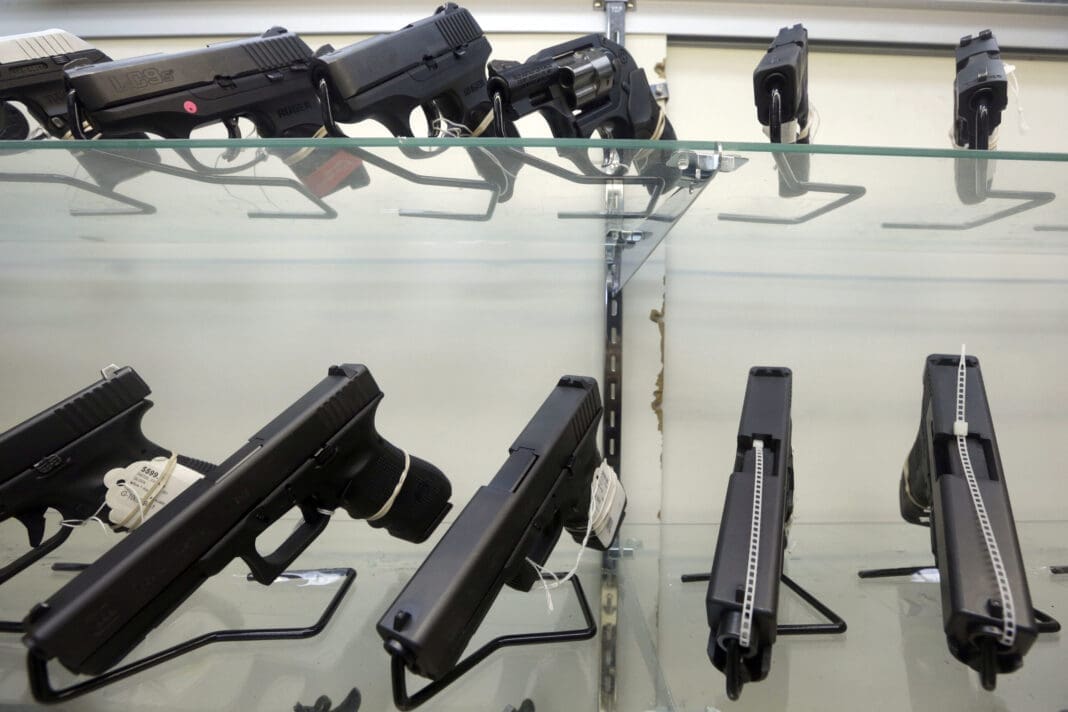The GOP's war on 'critical race theory' is all about winning elections
‘Critical race theory disrupts the racial social hierarchy. And those who benefit from this hierarchy are fighting to preserve it,’ one professor said.

Republicans have launched an all out war against educating students about structural racism, painting so-called “critical race theory” curricula as an attempt to indoctrinate children.
Experts say their attacks are little more than a calculated strategy to win elections.
“Critical race theory” examines how socially constructed racial, gender, and class hierarchies throughout history have led to systemic racism against people of color. According to Education Week, the term itself has been twisted in recent years to encompass all diversity or inclusion efforts, and is not traditionally a part of K-12 schooling, as some conservatives have claimed.
“The way we usually see any of this in a classroom is: ‘Have I thought about how my Black kids feel? And made a space for them, so that they can be successful?’ That is the level I think it stays at, for most teachers,” one teacher told the outlet earlier in May.
Conservative pushback to “critical race theory,” however, has been fierce nonetheless — and across the country, state legislators are busy introducing bills to stop diversity efforts in schools.
On April 28, Idaho Gov. Brad Little on signed a bill to prevent schools from “indoctrinating” students through concepts like critical race theory, the Associated Press noted.
In early May, Tennessee Gov. Bill Lee signed into law legislation banning critical race theory and any teachings that state “an individual, by virtue of the individual’s race or sex, is inherently privileged, racist, sexist, or oppressive.”
Around the same time, North Carolina House Republicans passed a bill to prohibit schools from promoting or endorsing such concepts.
Over a dozen other states recently passed or introduced similar bills targeting critical race theory from being taught in schools, including Arkansas, Louisiana, West Virginia, Iowa, Texas, and Oklahoma.
GOP states have also pushed back on the Biden administration’s efforts to educate students about systemic racism, namely criticizing two government grant priorities proposed on April 19, 2021, for “culturally responsive teaching.”
On May 19, Republican attorneys general from 20 states sent a letter to Education Secretary Miguel Cardona to oppose the teaching of critical race theory in classrooms.
“The Department should not adopt the proposed rule or, at a minimum, should make clear that grants may not fund projects that are based on CRT, including any projects that characterize the United States as irredeemably racist or founded on principles of racism (as opposed to principles of equality) or that purport to ascribe character traits, values, privileges, status, or beliefs, or that assign fault, blame, or bias, to a particular race or to an individual because of his or her race,” they wrote.
Experts told the American Independent Foundation that the GOP’s efforts are likely fueled by political ambition.
Professor Cheryl Harris, who teaches critical race theory at UCLA School of Law, pointed out the “curious” timing of the GOP’s attacks, tracing it back to Donald Trump’s efforts ahead of the 2020 presidential election.
“The trail leads to a quest to maintain power through controlling the narrative,” she said in an email. “In the thick of the presidential election Trump latched on CRT (critical race theory) as [a] bogeyman late in his campaign last fall as COVID deaths continued to rise, and the economy continued to sink.”
Trump issued an executive order in September 2020 that barred federal contractors and agencies from providing diversity training that taught “divisive concepts” about systemic racism and white supremacy.
“They were teaching people that our country is a horrible place, it’s a racist place. And they were teaching people to hate our country,” Trump said in the first presidential debate on Sept. 29, 2020. “I’m not gonna allow that to happen.”
Then-presidential candidate Joe Biden responded, “Nobody’s doing that.”
“[T]here is racial insensitivity. People have to be made aware of what other people feel like, what insults them, what is demeaning to them. It’s important people know,” Biden added. “We’re all Americans. … We can take this on and we can defeat racism in America.”
On his first day in office, Biden rescinded Trump’s executive order, saying he would be “reaffirming the federal government’s commitment to diversity, equity and inclusion, and accessibility.”
Prior to Biden’s reversal, a federal judge had blocked Trump’s order in December 2020, though as Harris noted, “This has not stopped efforts to enact similarly flawed legislation at the state level,” adding that the proposals “function as bait to whet the appetite of a certain segment of the electorate.”
“What is being served up here is leftover, warmed over denialism, and the impulse to put a target on the messenger rather than engage the actual message,” she said.
Other experts have sought to debunk the GOP’s mischaracterization and distortion of critical race theory.
“The GOP’s campaign to take down Critical Race Theory in schools and education, in general, is a desperate attempt to maintain the status quo and influence the perception that race can be (and should be) ignored,” Chanelle Wilson, an education professor at Bryn Mawr College, said in an email. “The GOP’s strategies are directly in alignment with fear of change.”
She noted that race was a social construct that “has been used to justify the subjugation of many, and the domination of people of European descent” for years.
“It has contributed to the white-washing of history and the Eurocentrism rampant in public education curricula,” Wilson said.
K-Sue Park, an associate law professor at the Georgetown University Law Center, said in a separate email that the GOP’s crackdown on diversity efforts were detrimental to the country as a whole.
“By trying to take away tools for understanding the problems we face, the GOP seems to want to preserve the racial divisions that have plagued this country for so long, forever,” Park said.
“Critical race theory disrupts the racial social hierarchy,” Widener University Delaware Law professor I. India Thusi said in an email. “And those who benefit from this hierarchy are fighting to preserve it.”
Moreover, experts underscored that critical race theory is instrumental in pursuing racial equality.
Tanya Kateri Hernandez, a Fordham Univesity’s School of Law professor, said the theory importantly recasts “the role of law as historically central to and complicit in upholding racial hierarchy as well as other hierarchies of gender, class and sexual orientation.”
Wilson added separately, “Critical Race Theory helps to point out the interlocking systems of oppression that intersect with issues of race and racism, such as class, gender, sexual orientation, religion, and other important identities that can be used to minoritize people. [Students] could begin to disrupt this reality in their own practices and within their spheres of influence, widening the capacity for a more just and equitable society.”
With the 2022 midterm campaign season approaching rapidly, Republican attacks on critical race theory feel reminiscent of the party’s other efforts to shift the narrative ahead of important elections.
Ahead of the 2018 midterms, and again before the 2020 elections, the GOP summoned racist, xenophobic talking points about a “caravan” of immigrants heading for the U.S.-Mexico border. The claims fed into the idea that large groups of immigrants were somehow “invading” the United States, many of them smugglers and criminals — a racist claim not backed by fact — as a method of scaring conservative voters enough to get them to the polls.
In reality, many of those immigrants were families with children or individuals fleeing threats of violence, and had simply banded together to make the long, dangerous journey to the border, seeking safety in numbers.
“Unfortunately, because they do that as a way to protect themselves, the image that’s created, that’s usable and weaponizable is that it becomes a metaphor for a whole bunch of people moving towards the U.S. en masse. And they use it like an invasion,” Leo Chavez, distinguished professor of anthropology at the University of California, Irvine, said in a phone interview, referring to Republican talking points.
In a 2018 op-ed, anthropology researcher J.P. Linstroth called the vitriol against the caravan “cruel electioneering,” advising people to ignore the racist rhetoric.
“These immigrants are desperate human beings wanting survival for their families. They are not security threats,” he wrote. “They should be protected and sheltered and given the same opportunities as our ancestors arriving at Ellis Island.”
Published with permission of The American Independent Foundation.
Recommended

Democrats regain full control of state House with two special election wins
In special elections on Tuesday, state House Democratic candidates Peter Herzberg and Mai Xiong scored victories in two Southeast Michigan districts to help secure a 56-54 voting majority for their caucus.
By Ken Coleman, Michigan Advance - April 17, 2024
Colorado House approves historic ban on ‘assault weapons’
Measure, opposed by every Republican and 9 Democrats, heads to Senate
By Sara Wilson, Colorado Newsline - April 14, 2024
Maine House censures two GOP members for blaming mass shooting on abortion law
‘Your remarks were extremely offensive and intentionally harmful to the victims and the families of the Lewiston tragedy, the House of Representatives, and the people of Maine,’ wrote Speaker Talbot Ross
By Evan Popp, Maine Morning Star - April 11, 2024









































































